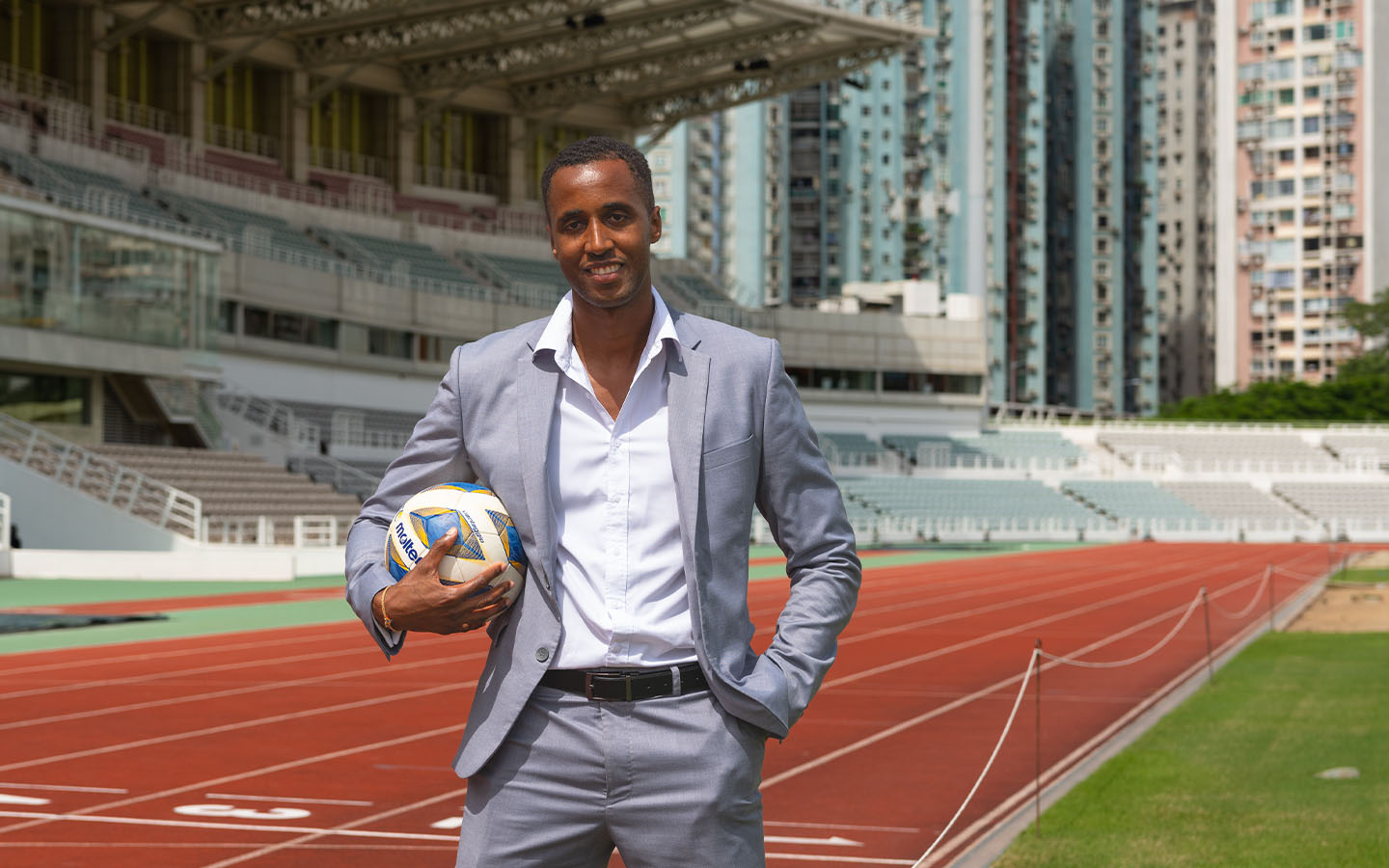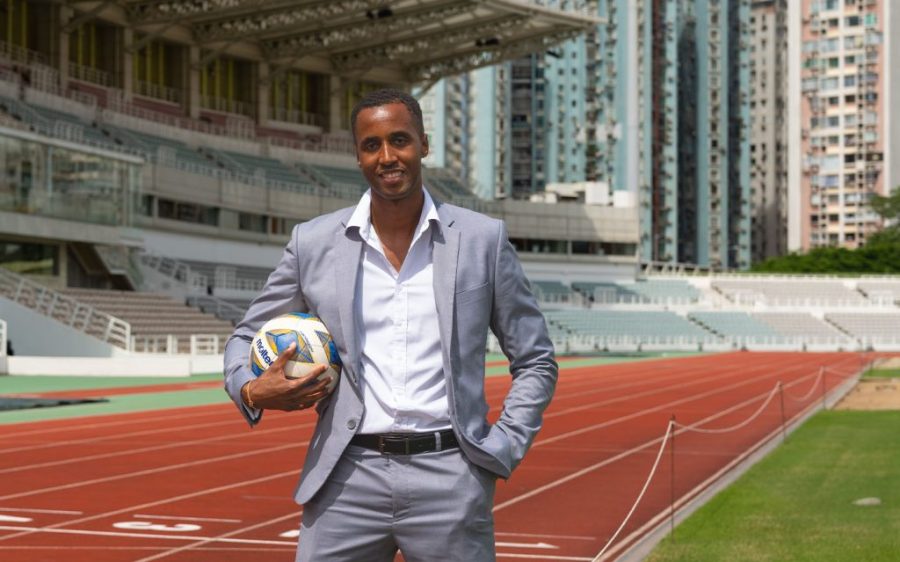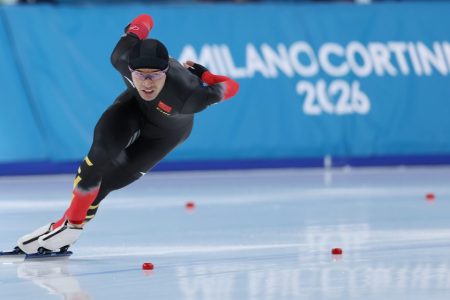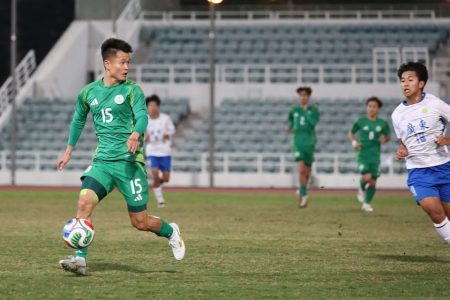With no professional league or even much of a structure to develop young players in Macao, how exactly does Taylor Gomes – the SARs first and only FIFA-licensed football agent – plan on helping local footballers?
Gomes, a lawyer by profession, achieved his licence in May under the FIFA’s new Football Agent Regulations. The new rules allow applicants to individually apply for accreditation, instead of approaching FIFA through their local football federation – in this case the Macau Football Association (MFA).
The hour-long exam consists of 20 multiple-choice questions from the extensive FIFA Football Agent Exam Study Materials. Candidates must get 15 correct answers. So far, FIFA has held three rounds of exams – last April and September, and May this year. The application process may seem simple: with enough cramming, who couldn’t get 15 out of 20? But out of 3,800 applicants in the first round, only 52 percent passed. The pass rate dropped to 19 percent in the second, before easing back up to 38 percent in the third, when Gomes sat the test.
[See more: What’s next for football in Macao?]
Gomes’ exam was held online and supervised by an MFA regulator. He can now officially handle different areas of a player’s career while scouting, nurturing, and assisting future talent.
Taylor Gomes took time out of his busy schedule to tell us how he can help young footballers in Macao, how the sport can improve, and what his goals are as a FIFA-licensed agent.
How can you help Macao as a FIFA-licensed agent?
The Macao championship is not my main focus. My commitment here would be to help the young talents. Those that are 14, 15 and 16 years old. If they want to go for trials in European academies and have the talent, I would like to help build that bridge.
[See more: Who is the youngest goal scorer in Euro football history, Lamine Yamal?]
I won’t scout players. Macao is small and it’s easier for somebody interested to find me. But when you speak about underage players, there also needs to be a commitment from the parents. They know the competition level is not high here. So if they say “We want our children to develop further abroad,” then that’s where I come in. It’s the other way around. I won’t be actively searching for the players.
What have you done to get things off the ground?
I’ve started to create my network and contacted some clubs. Right now, it’s only clubs in Portugal. I’ve already been approached by professional players and some in lower leagues. But I’m just starting to do my job now. I need to see what I can offer these players. It’s an ongoing process.
[See more: Macao footballer David Simões shares his experience with Shanghai Shenhua Football Club]
I was in Portugal this summer and linked up with other agents. I went to some academies and spoke with sports directors who are focused on the youth system. I also managed to take one player from Macao for trials in Portugal in Académica de Coimbra.
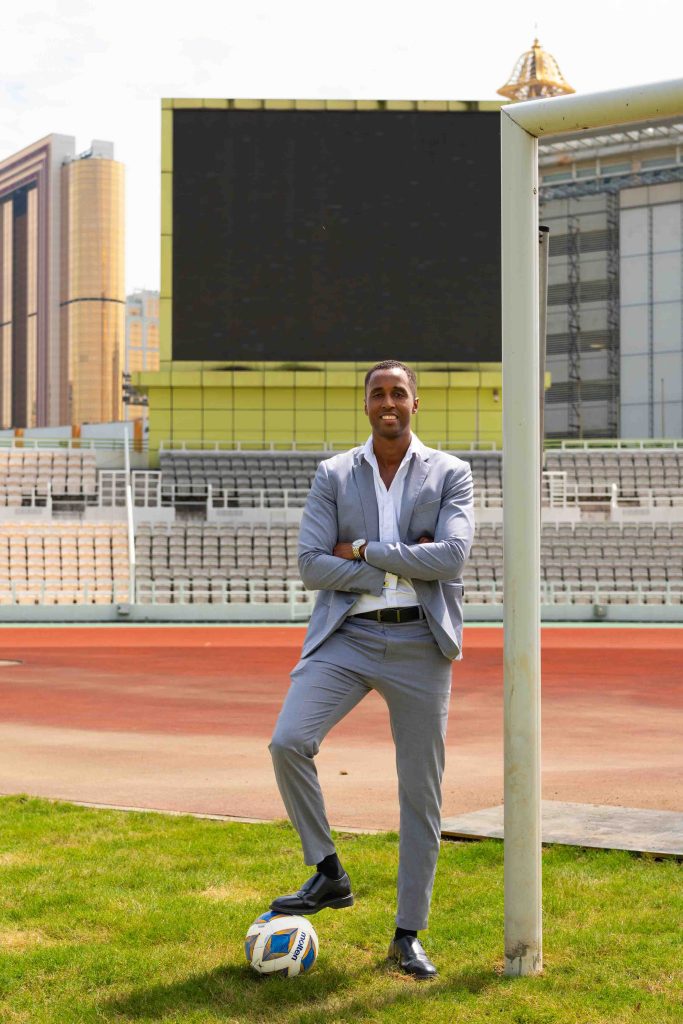
How did that go?
It was not the best result because the player was not approved to stay in the academy. But it was a good lesson. Even though this specific player was taken, the limitations are common to many players in Macao.
After I met with the club’s director of youth development, one of the things he told me was a difference in intensity and strength. Even though the player had some technical ability, he did not have the physical power and endurance to keep up with the [junior] levels at the club.
How can a player from Macao be good enough to play in Portugal?
If you bring a player from Macao to Portugal or any other country, they’ll look for the big club. But there might be a gap between their perception of what they can do and reality.
So I found a company (name to be mentioned once confirmed) in Portugal that helps players get into academies by preparing them first. I thought this was a good idea and could be a good partnership. We are still finalising some agreements before letting everyone know about it.
This can be a good bridge and platform to help Macao players succeed. Then, we won’t just take one player every year, but more players for trials in Portugal. I also noticed that you have to be closer to the player and ensure they are at a certain level of performance for a trial. Because an agent is only as good as the player they introduce to the clubs.
Everybody wants to go to Benfica, Sporting and Porto – but the level is not good enough. Instead of having that heartbreak, the idea is to take them first to Portugal to be assessed by a professional team, and then based on the assessment, taken to a team that is equivalent to the player’s level. It does not necessarily need to be a top club. If the player is committed to developing, they need to know that it’s a process.
What does football in Macao lack?
If you compare Macao football to Hong Kong or mainland China, first you have a limitation in space. The space affects the infrastructure, which is the football fields. There are just a few. You have a lot of people that want to play football, but we don’t have many facilities where you can do that.
The other part is investment. Hong Kong and mainland China are investing a lot. If the investment is low, like in Macao, there’ll be less development because they don’t invest in facilities and bring in good professionals to develop young talents.
[See more: ‘Why can’t others see it too?’ Meet William Gomes, Macao football’s biggest believer]
The professionals we have here are not bad. Especially the foreign players who come to play for the Macao championship. They take a role as a coach in the football academies and they are good. But in Hong Kong, they bring top talents from the Premier League. People who have coached at academies in the Premier League. They commit to developing football. There is no big commitment in Macao.
One thing that is very important and something that Macao lacks is youth structure championships. For example in Portugal, we start from Under-11, 13, 15, 17 and so on. And it’s very competitive. For under-11 alone, you have three or four tiers. That means the first tier is competitive and the kids are very good.
What was it like when you played football in Macao?
I’ve played football in Macao for about 10 years. Imagine playing for a first-division team that had to rent a football pitch once a week. I experienced that here.
If you see lower divisions in Portugal, Spain, or even Hong Kong, a fourth-tier team will train at least four times weekly. If a first division team in Macao has a football pitch once a week and has to go to the running track or the beach to keep fitness levels up – you can understand where we are in terms of football development.
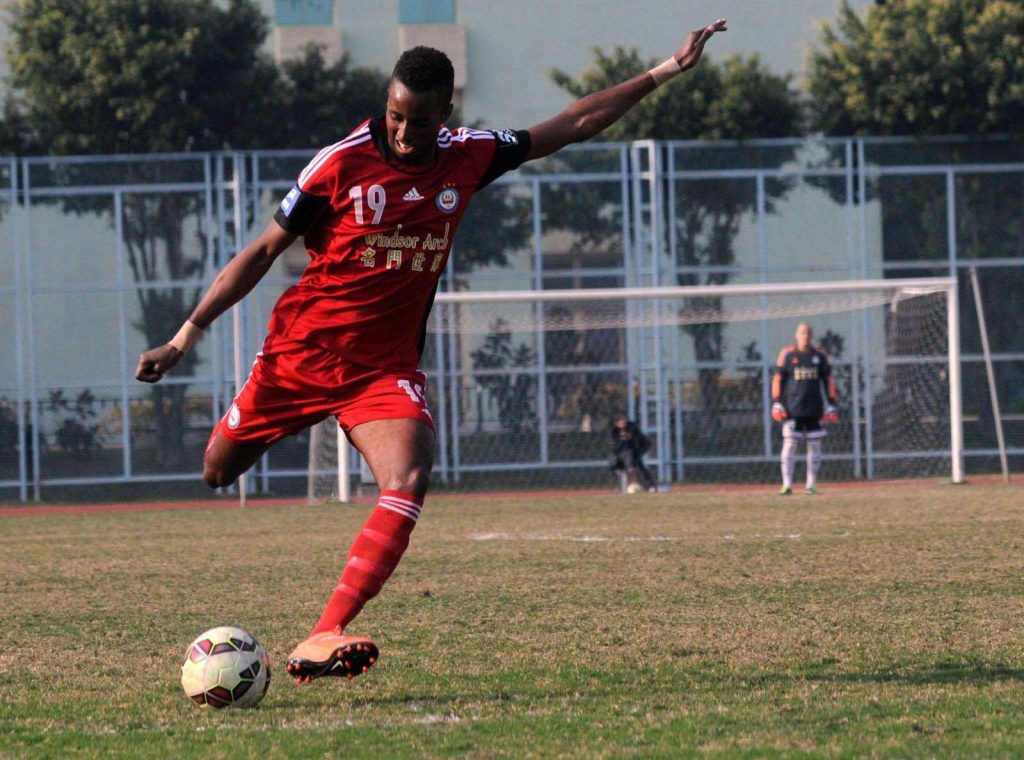
Can investors gain from sponsoring clubs in Macao?
If we speak about sports in Europe, it’s a big entertainment industry. This is where you can get the money. Companies support and sponsor teams because they get something out of it, like brand recognition.
[See more: Could Macao be co-hosting the 2031 FIFA Women’s World Cup?]
In Macao, football is just football. For the casinos to sponsor the teams, it takes into consideration that most teams don’t have a professional structure. What would they get out of it?
How would you describe football in Macao over time?
There have been many cycles. What I mean by cycles is that there was a big enthusiasm for football once upon a time and companies would support and sponsor some teams.
This was between 2005 and 2010. You had teams like Monte Carlo and Lam Pak that had support and they brought players from Hong Kong. Then, in 2011 and 2012, Ka I came onto the scene. They started to invest and bring the best players from other teams in the Macao league. And that made Monte Carlo and Lam Pak invest more. In 2012, Benfica came to the First Division. They also invested heavily. So you had Benfica, Monte Carlo, Lam Pak and Ka I. They all invested and the league became competitive.
[See more: Nine questions for Macao’s top centre forward Leong Ka Hang]
In 2018-19, Benfica wanted to participate in the AFC. So they were investing. But then all of a sudden, they lost interest and stopped chasing big sponsors. That cycle ended and all the other teams stopped investing as well. The only team with significant investment now is Chao Pak Kei (CPK).
The good thing is that many teams have noticed the unstable investments. So the more sustainable way for them to continue is to invest in the academies. Monte Carlo opened their academy. CPK has had their academy for quite some time and has many kids. Benfica has a very stable academy and their own pitch, which helps them do a very good job. Ivo10 Brazil Football Academy is also a very good academy.
The teams realise that for a guaranteed future, they need to nurture local talents. They cannot rely on bringing foreign talent. So I think that’s a good sign for Macao football.
What’s your goal?
To at least put one player in a professional championship by next year. I want to start with a simple goal: help one player transition from an amateur to a professional championship. For me to do that is a good starting point.
Along with the company that I mentioned earlier, we hope to organise the first Macao-wide trial to see if we can take a couple of players to Portugal.
